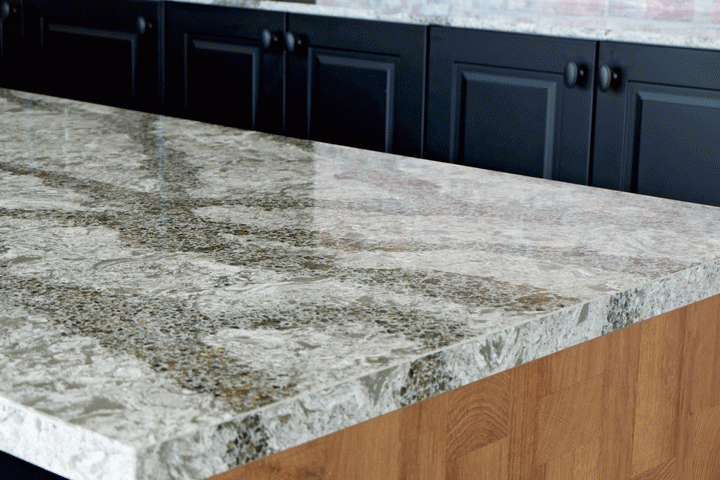
While there are a lot of quality countertop material choices out there, especially as it relates to natural stone, engineered stone such as quartz provides a few distinct advantages over alternative options. What differentiates quartz or engineered stone from natural stone is evident from their titles. Engineered stone countertops are made by taking around 90-94% quartz, a natural stone, and mixing it with some combination of resins, polymers, and pigments.
The quartz is ground down, but depending on the desired pattern or look, how course or fine the grind is varies. Additionally, due to the ability to introduce certain colors into the mix, quartz can offer up a more diverse range of patterns and colors than materials like marble or granite. Since marble and granite are dependent on the rock they’re cut from, they end up being more unique per slab, which forces buyers to adapt to the stone rather than making the stone adapt to their design scheme.
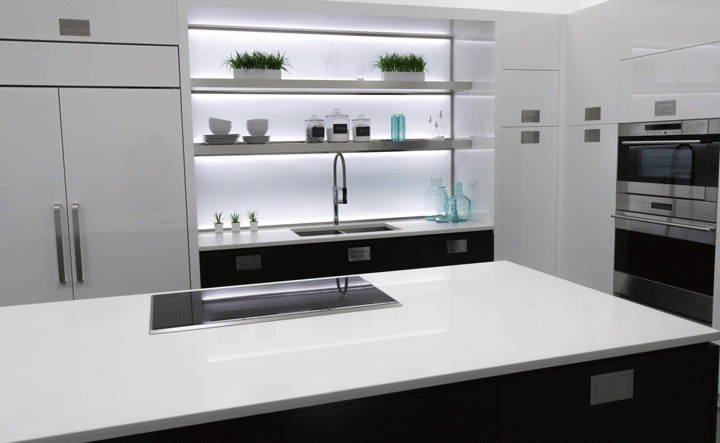
Granite and other natural stones are known for their durability and heat resistance. No worries, as quartz-based engineered stone is as strong, if not stronger, than granite, and is less prone to chipping or scratching. Furthermore, quartz countertops, due to the process in which they’re made, hold up well to stains and are acid-abrasion resistant. This is because they are non-porous due to the use of resins to hold them together.
[get_quote]
Like natural stone materials, quartz can be finished with either a polished or honed finish. That said, the same rules that apply to protecting the finishes of natural stone also apply to engineered stone. Non-abrasive cleaners are key to protecting a polished finish, and if you opt for a honed finish, fingerprints and smudges will be more visible to the naked eye. Fortunately, warm water and soap is often all you’ll need to keep your engineered stone counters looking brand new.
Quartz-based engineered stone counters are also more bacteria resistant than their natural stone counterparts, which is again due to their non-porous quality. Combine this with their scratch-resistance and using quartz counters as a cutting-board-free prep area becomes a possibility. Nevertheless, it’s always best to avoid exposing your counters directly to knives or other sharp objects – even though you can do something doesn't mean you should.
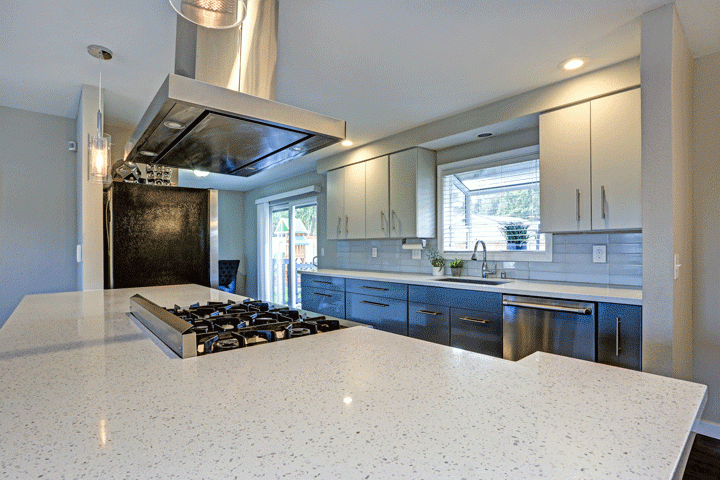
Even though quartz-based engineered stone counters are heat resistant, it is still heavily advised to use trivets to protect it from hot pots and pans. After all, the resins might be durable, but it’s still resin, which means extreme heat could warp it. This is the primary reason why you won't see quartz used for floors that are either heated or near baseboard heating. The constant exposure to heat over a long period of time can damage the engineered stone surface, specifically the resins that bind it all together.
Ultimately, though, engineered stone provides all the benefits of natural stone and then some. Due to its manmade nature, more consistent colors and matching specific design elements are easier to achieve. It’s also both eco-friendly and cheaper than natural stone options. Perhaps the next time you are shopping for countertops, you’ll consider going with engineered quartz-based stone instead of the more expensive and more maintenance-intensive natural stone.













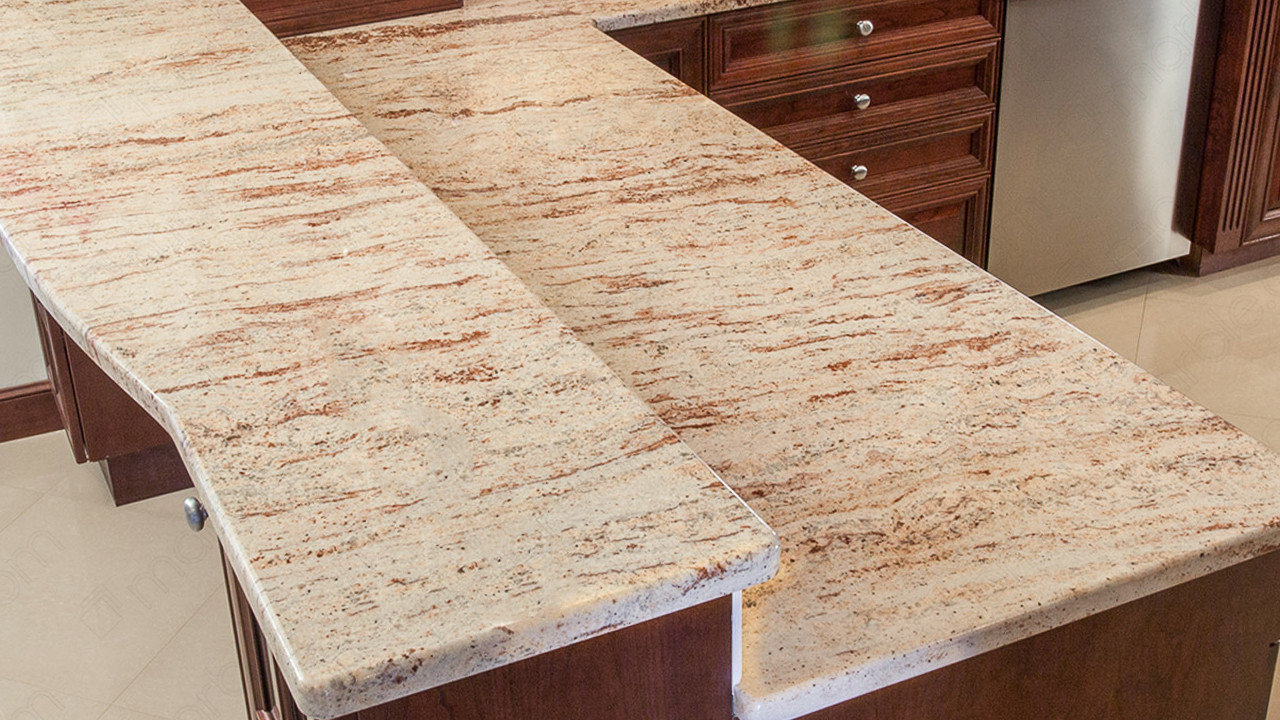
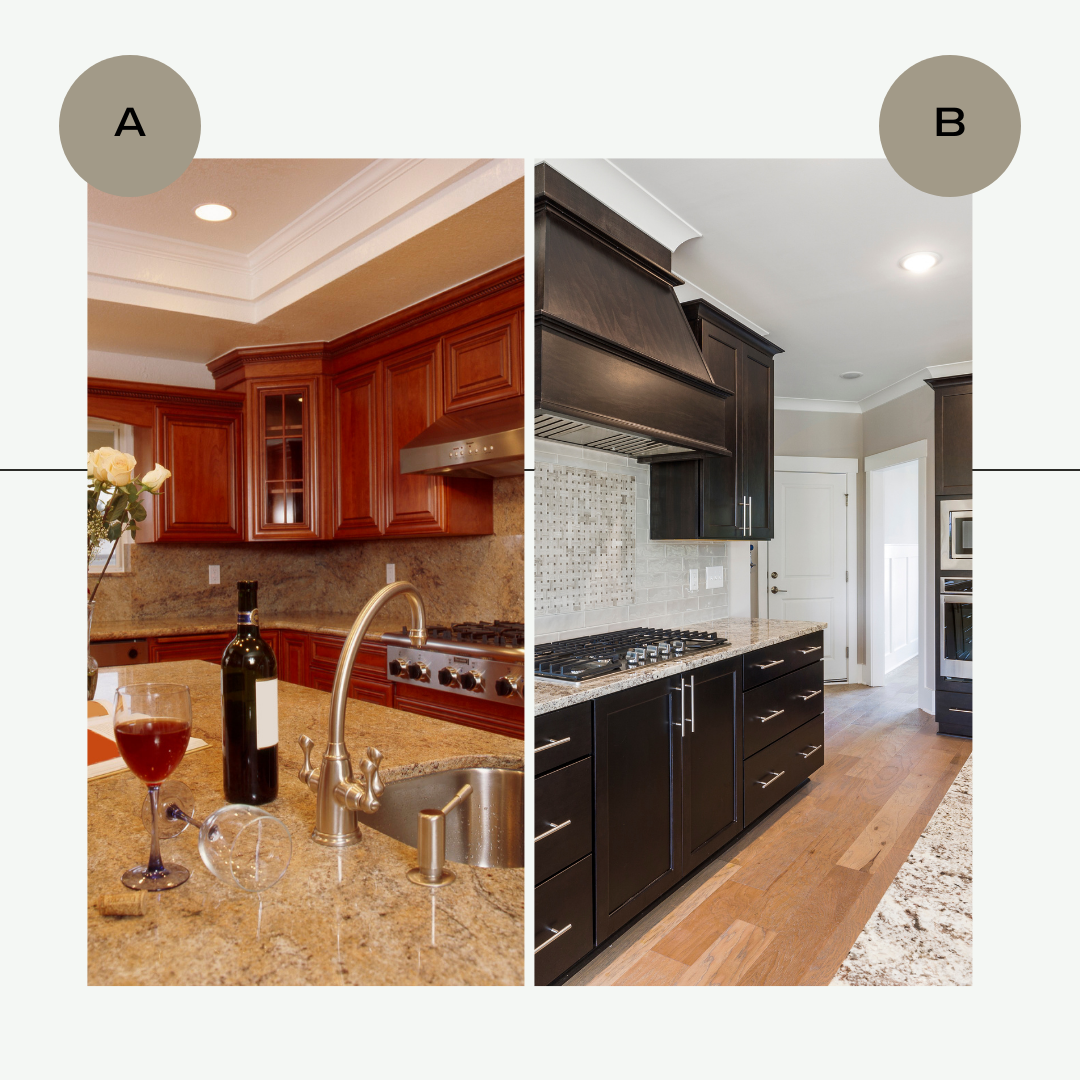
 The article helped me immensely
The article helped me immensely
 I’m now more informed on the subject
I’m now more informed on the subject
 I have questions about Marble.com
I have questions about Marble.com
 The article was not accurate at all
The article was not accurate at all
 There is a serious lack of information
There is a serious lack of information
 I have questions about Marble.com
I have questions about Marble.com